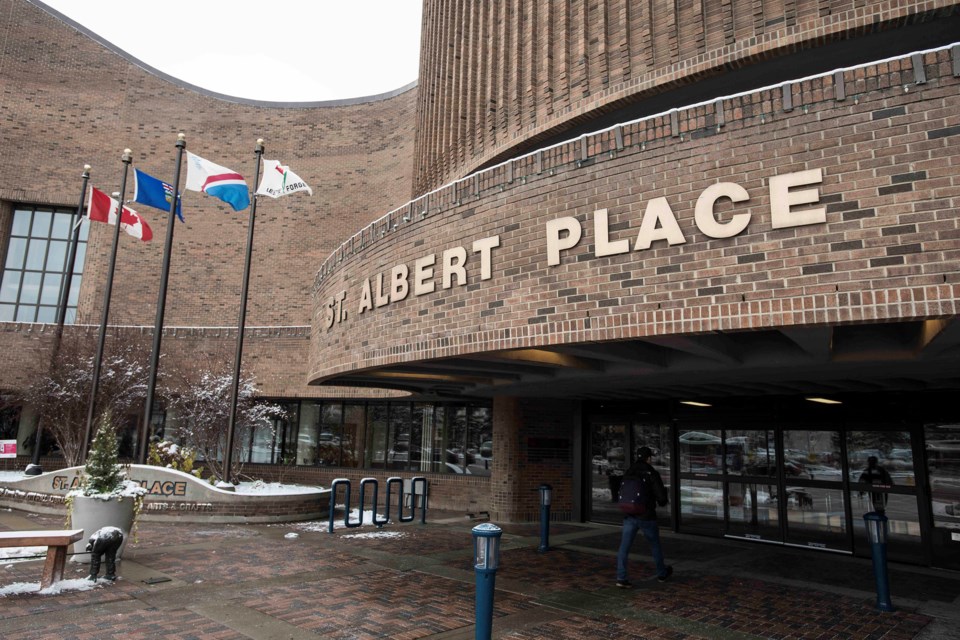St. Albert city council has voted to move forward on the formation of an Indigenous advisory committee.
The committee would guide the city in ongoing reconciliation efforts. On Jan. 31, council voted for administration to prepare a bylaw for the new committee’s creation. The bylaw will come before council’s Community Living Standing Committee’s (CLSC’s) for consideration on April 11.
Earlier in January, the CLSC received a framework for the advisory committee created by city-hired consultant pipikwan pêhtâkwan, formerly known as Gwin Communications. The framework outlined the committee’s membership and immediate priorities; one example includes defining what reconciliation and Indigenization would look like for city council.
Shani Gwin, founder of pipikwan pêhtâkwan, said the advisory committee is a “really amazing opportunity” to put colonial structures “to the side and try something different,” when presenting the framework to the CLSC committee.
“That is pretty unheard of at this point in Alberta,” Gwin said of the advisory committee’s planned ability to report directly to council. “There are so many levels of bureaucracy, and it would be difficult for that perspective to go untouched to you through more a formal administrative process.”
To construct the framework, pipikwan pêhtâkwan engaged members and representatives of Indigenous communities both in and around St. Albert through conducting focus groups and one-on-one interviews.
According to the framework, the committee would be made up of a maximum of 16 members: up to seven urban Indigenous community members, one Métis Nation of Alberta Region 4 member, one St. Albert-Sturgeon Métis Local member, and one confederacy of Treaty Six member.
Additionally, the committee would include up to five First Nations members from the surrounding area (one each from Alexander First Nation, Alexis Nakota Sioux, Enoch Cree Nation, Paul First Nation, and Michel First Nation).
In addition to approving the Indigenous advisory committee and recruiting members, pipikwan pêhtâkwan recommended council approve the use of honorariums for the committee’s members.
Council’s existing committees are currently volunteer based, meaning members are unpaid.
An administrative backgrounder on the committee said the upcoming bylaw will include a recommendation for the establishment of a $10,000 annual budget to support the committee. The backgrounder did not include a breakdown of how this budget would be used, or the cost of honorariums.
Other council committees have similar budgets; for example, in 2020, the city’s policing committee had an approved operated budget of $10,000, of which they spent $8,177, according to an annual report.
Financials unclear: councillors
Councillors Shelley Biermanski and Sheena Hughes raised concerns about monetary aspects of the outlined Indigenous committee, including the recommended use of these honorariums.
Hughes expressed frustration that the real costs of the committee were not being shared with council.
“There should be a full transparency about what we’re actually agreeing to, and this backgrounder fails to mention that adequately,” Hughes said, speaking of the $10,000 being included but not broken down.
Hughes also said she was worried about the potential difficulty of turning down initiatives the future committee brings forward based on financial cost.
Cindy de Bruijn, senior manager of community relations at the city, said committees are often supported by a member of city administration; in the case of the Indigenous advisory committee, this would be the Indigenous relations advisor. De Bruijn said the advisor would work to ensure committee members recognize there is a limited budget when planning new ideas and initiatives.
Gwin agreed with Biermanski and Hughes, acknowledging it’s important to be cautious as the committee progresses. She noted there is also a lot to be excited about as council moves forward on the committee’s creation.
“We have this idea of what advisory committees are in the city of St. Albert, and maybe that’s a colonial idea,” Gwin said. “I’m hoping that this committee can break through some of those molds and be something new and different that St. Albert can be proud of in the region and maybe even provincially.”
When ultimately brought before council, Biermanski voiced additional concerns about the committee’s structure.
“I feel like we’re remiss in representing the community when we’re creating a bylaw for outside communities without first discussing it within the city,” Biermanski said, noting the committee will have city tax dollars at its disposal. “I’m very confused by this bylaw — it seems a little bit premature.”
Mayor Cathy Heron noted de Bruijn’s team has made note of council’s concerns, and will consider them as the bylaw is drafted.
“It’s really hard to debate a bylaw until it’s actually in front of us,” Heron said. “There’ll be lots of opportunities before we approve anything for you to talk about residency of the committee, or pay of the committee, or whatever your concerns are.”
Council voted 6-1 in favour of having administration prepare the bylaw, with Biermanski opposed.
The bylaw will come before council’s Community Living Standing Committee’s (CLSC’s) for consideration on April 11.




